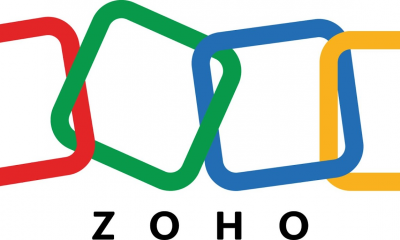Technology
The Growing Importance of Privacy Amongst Customers and How Businesses Should Cater to it

By Kehinde Ogundare and Veerakumar Natarajan
Privacy is a growing concern for technology consumers worldwide. While there was a time when that may not have been the case for countries like Nigeria and Kenya, that’s no longer the reality. As connectivity becomes more affordable and ubiquitous, Kenyans and Nigerians have become increasingly tech-savvy and conscious regarding how much data they share with technology companies and what the latter is doing with it.
In the face of these growing concerns, companies operating in Africa need to be mindful of the increasing privacy mindset of their customers. Aside from regulatory compliance, companies should actively demonstrate that they care about their customers’ privacy concerns to build and sustain trust and to show they’re taking a proactive approach to protect their personal information.
The importance of regulatory compliance
The first step any company should take to safeguard their customers’ privacy is ensuring they’re compliant with all of the relevant laws and regulations. In countries like Kenya and Nigeria, data protection regulations are relatively new.
The Data Protection Act of 2019, enforced by the Office of the Data Protection Commissioner (ODPC), regulates data protection in Kenya. The act expressly prohibits organisations from processing personal data if their consent has not been provided first. Each organisation must have a data controller and/or a data processor whose responsibility is to prove they’ve obtained consent before processing a person’s data.
Nigeria’s Data Protection Act, meanwhile, was signed into law in 2023. The act governs both manual and automatic data processing. The act also established the Nigeria Data Protection Commission (NDPC), which is an independent body that governs data protection and regulation in the country. In addition to defining sensitive personal data as including an individual’s genetic and biometric data as well as their race, ethnicity, and health status, among other things, the act also provides specific grounds for the processing of this sensitive personal data. According to the act, such data can be processed where consent is provided or where processing is necessary for social security or employment laws.
Both of these laws are in line with similar laws and regulations around the world, such as Europe’s GDPR. That means they’re not only a good place for Nigerian and Kenyan businesses to start for compliance, but they also help businesses gain a good footing when it comes to protecting customer data should they start operating internationally.
Beyond compliance
Companies should, however, view regulatory compliance as the bare minimum when it comes to meeting their customers’ privacy needs. Given the parlous state of privacy protection across many African countries, going above and beyond with customer privacy can be a positive differentiator for companies that get it right.
Among the initiatives they can undertake in this direction are investing in data centre security to minimise the collection of data, requesting permission from customers while collecting sensitive information, and ultimately reducing their reliance on selling user data for revenue gains. Another initiative that organisations can implement is implementing multi-factor authentication if they require customers to log in to an account to access their products and services.
Another aspect that businesses should pay close attention to is which technology vendor they work with to run their internal operations. Businesses should ensure the third-party tech tools they deploy within their IT infrastructure also come with strong data privacy and protection controls, and the corresponding vendors also practice transparent data collection practices. Should one of these vendors fall victim to a cybersecurity breach, the customer data of the organisations using it could easily fall into nefarious hands.
Businesses should, therefore, ensure they make use of software providers and vendors that are, themselves, compliant with all the relevant privacy laws and regulations, and offer a comprehensive set of security measures and procedures, including controlled user access, enterprise mobility management (EMM) integration, IP restrictions, and secure integrations.
Riding the positives of proactive protection
While there are many negatives associated with data protection failures, including reputational damage and legal punishments, it’s also important that organisations understand the positives associated with proactive data protection.
High up on the list of those positives is building trust. Customers who trust the companies they buy from are more likely to be loyal in the long term, make repeat purchases in the future, and act as evangelists to others. At a time when customers are increasingly concerned about data privacy, building that trust is more difficult, but also more rewarding than ever. It, in other words, is something worth investing in.
Kehinde Ogundare is the Country Manager for Zoho Nigeria and Veerakumar Natarajan is the Country Head for Kenya Zoho Corp.
Technology
Expert Reveals Top Cyber Threats Organisations Will Encounter in 2026

By Adedapo Adesanya
Organisations in 2026 face a cybersecurity landscape markedly different from previous years, driven by rapid artificial intelligence adoption, entrenched remote work models, and increasingly interconnected digital systems, with experts warning that these shifts have expanded attack surfaces faster than many security teams can effectively monitor.
According to the World Economic Forum’s Global Cybersecurity Outlook 2026, AI-related vulnerabilities now rank among the most urgent concerns, with 87 per cent of cybersecurity professionals worldwide highlighting them as a top risk.
In a note shared with Business Post, Mr Danny Mitchell, Cybersecurity Writer at Heimdal, said artificial intelligence presents a “category shift” in cyber risk.
“Attackers are manipulating the logic systems that increasingly run critical business processes,” he explained, noting that AI models controlling loan decisions or infrastructure have become high-value targets. Machine learning systems can be poisoned with corrupted training data or manipulated through adversarial inputs, often without immediate detection.
Mr Mitchell also warned that AI-powered phishing and fraud are growing more sophisticated. Deepfake technology and advanced language models now produce convincing emails, voice calls and videos that evade traditional detection.
“The sophistication of modern phishing means organisations can no longer rely solely on employee awareness training,” he said, urging multi-channel verification for sensitive transactions.
Supply chain vulnerabilities remain another major threat. Modern software ecosystems rely on numerous vendors and open-source components, each representing a potential entry point.
“Most organisations lack complete visibility into their software supply chain,” Mr Mitchell said, adding that attackers frequently exploit trusted vendors or update mechanisms to bypass perimeter defences.
Meanwhile, unpatched software vulnerabilities continue to expose organisations to risk, as attackers use automated tools to scan for weaknesses within hours of public disclosure. Legacy systems and critical infrastructure are especially difficult to secure.
Ransomware operations have also evolved, with criminals spending weeks inside networks before launching attacks.
“Modern ransomware operations function like businesses,” Mitchell observed, employing double extortion tactics to maximise pressure on victims.
Mr Mitchell concluded that the common thread across 2026 threats is complexity, noting that organisations need to abandon the idea that they can defend against everything equally, as this approach spreads resources too thin and leaves critical assets exposed.
“You cannot protect what you don’t know exists,” he said, urging organisations to prioritise visibility, map dependencies, and focus resources on the most critical assets.
Technology
NCC Begins Review of National Telecommunications Policy After 26 Years

By Adedapo Adesanya
In a consultation paper released to the public, the commission said it is seeking input from stakeholders, including telecom operators, tech companies, legal experts, and the general public, on proposed revisions designed to reposition Nigeria’s telecommunications framework to match current digital demands. Submissions are expected by March 20, 2026.
The NTP 2000 marked a turning point in Nigeria’s telecom landscape. It replaced the 1998 policy, introducing full liberalisation and a unified regulatory framework under the NCC, and paved the way for the licensing of GSM operators such as MTN, Econet (now Airtel), and Globacom in 2001 and 2002.
Prior to the NTP, the sector was dominated by Nigerian Telecommunications Limited (NITEL), a government-owned monopoly plagued by obsolete equipment, low teledensity, and poor service. At the time, Nigeria had fewer than 400,000 telephone lines for the entire country.
However, the NCC noted that just as the 1998 policy was overtaken by global developments, the 2000 framework has become structurally misaligned with today’s telecom reality, which encompasses broadband, 5G networks, satellite internet, artificial intelligence, and a thriving digital economy worth billions of dollars.
“The rapid pace of technological change and emerging digital services necessitate a comprehensive update to ensure the policy continues to support economic growth while protecting critical infrastructure,” the Commission stated.
The review will target multiple chapters of the policy. Key revisions include: Enhancements on online safety, content moderation, digital services regulation, and improved internet exchange protocols; a modern framework for satellite harmonisation, coexistence with terrestrial networks, and clearer spectrum allocation to boost service quality, and policies to address fiscal support, reduce multiple taxation, and lower operational costs for operators.
The NCC is also proposing entirely new sections to the policy to address emerging priorities. Among the key initiatives are clear broadband objectives aimed at achieving 70 per cent national broadband penetration, with a focus on extending connectivity beyond urban centres to reach rural communities.
The review also seeks to formally recognise telecom infrastructure, including fibre optic cables and network masts, as Critical National Infrastructure to prevent vandalism and enhance security.
In addition, the commission is targeting the harmonisation of Right-of-Way charges across federal, state, and local governments, alongside the introduction of a one-stop permitting process for telecom deployment, designed to reduce bureaucratic delays and lower operational costs for operators.
According to the NCC, the review aims to make fast and affordable internet widely accessible. “The old framework was largely voice-centric. Today, data is the currency of the digital economy,” the commission said, highlighting the need to close the urban-rural broadband divide.
The consultation process is intended to gather diverse perspectives to ensure the updated policy reflects current technological trends, market realities, and consumer needs. By doing so, the NCC hopes to maintain the telecommunications sector’s role as a key driver of economic growth and digital inclusion.
Technology
FG to Scrutinise MTN’s $2.2bn Full Take Over of IHS Towers

By Adedapo Adesanya
The Minister of Communications, Innovation and Digital Economy, Mr Bosun Tijani, says the Nigerian government is assessing MTN Group’s acquisition of IHS Towers to ensure the deal aligns with Nigeria’s telecommunications development goals.
On Tuesday, MTN Group said it has agreed to acquire the remaining 75.3 per cent stake in IHS Holding Limited in an all-cash deal valued at $2.2 billion. The deal will be funded through the rollover of MTN’s existing stake of around 24 per cent in IHS, as well as about $1.1 billion in cash from MTN, roughly $1.1 billion from IHS’s balance sheet, and the rollover of no more than existing IHS debt.
Mr Tijani, in a statement, said the administration of President Bola Tinubu has spent the past two years strengthening the telecom sector through policy clarity, regulatory support, and engagement with industry stakeholders, boosting investor confidence and sector performance.
“Recent financial results from key operators show improved profitability, increased investment in telecoms infrastructure, and operational stability across the sector,” he said.
“These gains reflect the resilience of the industry and the impact of government reforms.”
The minister added that telecommunications infrastructure is critical for national security, economic growth, financial services, innovation, and social inclusion.
“We will undertake a thorough assessment of this development with relevant regulatory authorities to review its impact on the sector,” Mr Tijani said.
He added that the review aims to ensure market consolidation or structural changes, protect consumers, safeguard investments, and preserve the long-term sustainability of the telecom industry.
Mr Tijani also said the government remains committed to maintaining a stable and forward-looking policy environment to keep Nigeria’s telecommunications sector strong and sustainable, in line with the administration’s broader digital economy vision.
Upon completion, the transaction will see MTN transition from being a minority shareholder in IHS to a full owner. It will also see IHS exit from the New York Stock Exchange and become a wholly owned subsidiary of MTN.
For MTN, the deal represents a decisive shift as data demand surges and digital infrastructure becomes increasingly strategic with a booming digitally-oriented youth population on the continent.
-

 Feature/OPED6 years ago
Feature/OPED6 years agoDavos was Different this year
-
Travel/Tourism10 years ago
Lagos Seals Western Lodge Hotel In Ikorodu
-

 Showbiz3 years ago
Showbiz3 years agoEstranged Lover Releases Videos of Empress Njamah Bathing
-

 Banking8 years ago
Banking8 years agoSort Codes of GTBank Branches in Nigeria
-

 Economy3 years ago
Economy3 years agoSubsidy Removal: CNG at N130 Per Litre Cheaper Than Petrol—IPMAN
-

 Banking3 years ago
Banking3 years agoSort Codes of UBA Branches in Nigeria
-

 Banking3 years ago
Banking3 years agoFirst Bank Announces Planned Downtime
-

 Sports3 years ago
Sports3 years agoHighest Paid Nigerian Footballer – How Much Do Nigerian Footballers Earn





















